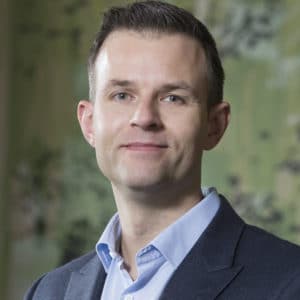One year of the MSc programme


James Thorpe
Share this content
In February 2021, Stuart Nash was one of the first learners to be admitted onto the updated MSc programme in International Security and Risk Management with the University of West London. As he now approaches his final submission date, International Security Journal checked in with him about how he felt his past year of academic study had gone.
The background
From ex-Armed Forces personnel to MSc certified business owner, the last 13 years have certainly been a period of professional growth for one learner. In 2008, Stuart Nash left the military after a 14-year service career and commenced his own security consultancy business. Beginning in South America assisting those in the music business, over the next four years Stuart moved with the work, consulting in the Caribbean, Europe and South East Asia with a mixture of well-known private clients and multi-national organisations. By 2012 Stuart had returned to the UK and focused his business more closely on close protection, ground transportation, residential security and surveillance.
Professional development at a strategic level
But Stuart found himself keen to develop his academic side: “I’ve always invested in myself every year to 18 months,” he says, “whether it’s a Level 5 Certified Security Consultant, Level 7 Security Management or gaining the ASIS CPP Certification.” With the ever-increasing demand for certification of the security sector, it was becoming more paramount to stand out, particularly amongst his peers: “I was aware that PerpetuityARC Training had a high standing in the education sector and I wanted a new mental challenge.” So, he applied for the MSc programme.
There are several MSc courses in security. Why did you choose this one?
The attraction was that the programme could be completed full time within one year and had an immediate start date. After consulting with MSc academic tutors Charlie Swanson and Ayesha Juddoo who reassured him about the course, he decided to take the plunge and signed up to the one-year full-time MSc course in International Security and Risk Management, delivered in partnership with the University of West London. As it happens, he was one of the first learners to sign up to this flagship course with the University and will be one of the first to finish. With a February 2022 end date, Stuart is now in the final stages of the programme as he completes his academic dissertation.
What is it really like – studying for a masters at the same time as working?
“It has been an eye-opening experience and the work-life balance can be hard, especially if you’re undertaking the degree whilst in full time employment whilst also volunteering as the Treasurer for ASIS UK and as part of the COVID-19 vaccination programme with St John Ambulance.” He reflects: “It is critical to have support from your employer and family in order to get through.” But despite the struggle of balancing his responsibilities, he also considers all the positives he’s drawn from his experience: “Getting up-to-date viewpoints and insights from Charlie (lead tutor) has really opened my eyes. I’m also taking some of the taught academic principles, like critical thinking for example and applying them in more depth within my professional role.”
An example of what you do differently now?
“Client risk assessments. In the past, I would complete a risk assessment to a reasonable level, whereas now, when I visit a client site or speak to someone, I’m thinking about risk assessments in more detail, how they can be applied better and what I can do better in my job through constant evaluation and analytical thinking. I’m able to demonstrate the knowledge I’ve gained from the course to the client and be confident in what I’m saying.” This knowledge boost has also helped Stuart to win new business: “I’m able to pose questions to clients that they hadn’t considered and give them answers that I didn’t know before.”
What advice do you have for those thinking of doing an MSc?
Finally, with almost a year’s experience under his belt, we asked him what would he say to people considering doing this course? “Definitely speak to others who have done it and get advice or hear about their experience.” He says, “the fact that you’re considering it probably means you’re ready for it.” He also advises that doing it in one year is intense so be prepared: “The compressed timeline forced my attention and made me give everything to it.”
His final words? “Make sure you utilise the support that’s available. The Perpetuity team always answer questions, give guidance and offer helpful advice when requested. I never felt like I was on the journey alone. Their support this year has been invaluable. If you have an employer, their support would be helpful too. It’s crucial.”

For more information, visit www.perpetuityarc.com



